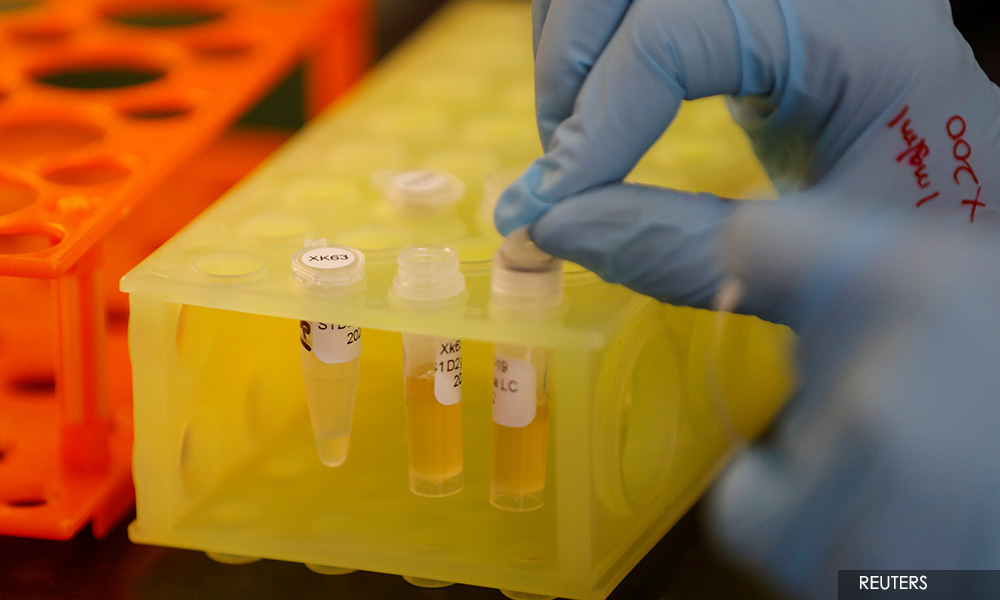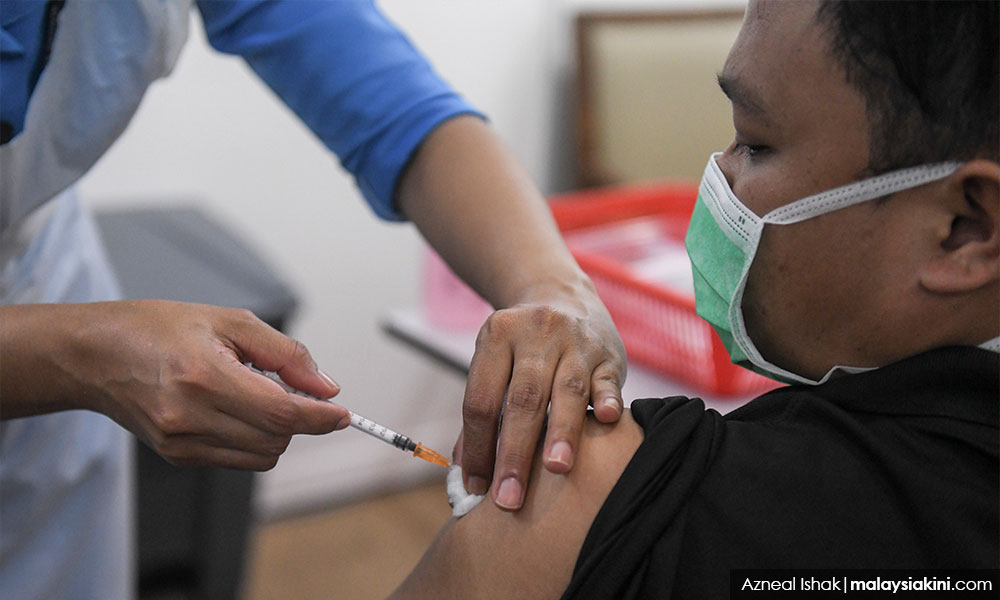Several travellers from China had recently arrived in Sarawak and underwent mandatory quarantine as well as RT-PCR testing. Despite already being given two doses of a Covid-19 vaccine in their home country, they tested positive for the disease.
National Covid-19 Immunisation Programme Coordinating Minister Khairy Jamaluddin said such cases have prompted a rethink of how Malaysia would reopen its borders in the future.
The minister said that despite being fully vaccinated, tests found that these individuals had a high viral load and thus highly infectious at the time of their arrival.
“This has led us to rethink how we will reopen borders, which is not to say we don't want to reopen borders but we really have to have a better understanding of where they are coming from.
“When we start thinking about reciprocal arrangements with other countries and creating travel bubbles, we have to understand the genomic profile of cases in that country.
“If that country has a prevalence of variants that are highly transmissible, more lethal, and variants that are very stubborn against the vaccines we use here, then we must be more vigilant in the requirements of them coming - for instance insisting on the full quarantine, insisting on RT-PCR tests, and let those policies stay in place,” he told an interview with BFM Radio yesterday.

On the other hand, he said Malaysia may impose less stringent entry requirements for travellers coming from places where such Covid-19 variants are not prevalent.
His statement comes as many countries including Malaysia explore the possibility of using “vaccine passports” to facilitate the reopening of international borders, which had been highly restricted since the pandemic began to take hold last year.
Prime Minister Muhyiddin Yassin had also proposed allowing fully vaccinated people in Malaysia to cross state and district borders.
For the record, most of the highly publicised efficacy figures refer to a Covid-19 vaccine’s ability to prevent symptomatic infections and none are 100 percent effective. Some media reports also mention the vaccines’ ability to prevent severe illness and deaths due to the disease, which are typically a much higher figure.
However, less is known about the vaccines’ ability to prevent asymptomatic infections and further transmission, as studies on the issue are still ongoing.
On March 12, it was reported that the Pfizer-BioNTech vaccine is 94 percent effective in preventing asymptomatic infections, but the underlying data has yet to be published.
Meanwhile, when asked about countries that may have lesser genomic surveillance capacity to detect emerging Covid-19 variants, Khairy conceded that dealing with these countries would be a challenge.
“Logically that would be the case (that Malaysia does not reopen borders with such countries), but it would be unfair to penalise certain countries like that. So, we would have to make some educated assumptions about a particular country when we do the analysis.
“But in terms of the initial first few countries we want to open up with, I think we have to be on the side of safety and try to understand the prevalence of variants from that country first,” he added.
As for Malaysia’s Covid-19 genomic surveillance programme, Khairy said some of the funds earmarked for the vaccination programme would go towards ramping up the sequencing of Covid-19 samples collected in the country.

Without disclosing the amount of funding, he said the money would go to the Health Ministry’s National Institute of Health and the Science, Technology, and Innovation Ministry’s Malaysian Genomic Institute.
This entails sequencing the whole genetic sequence of the virus sample to look for certain mutations that could potentially cause problems.
“At the moment, of course, take whatever vaccine that is offered to you. Fifty percent efficacy is better than none, but there will come a time when that efficacy rate may be challenged by these variants.
“At that point, there is no point using those vaccines anymore. That's why when we came up with the Covid-19 immunisation plan, I insisted that the Finance Ministry put aside enough money for genomic surveillance so that we can understand the enemy.
“If we are using guns that are not working against the enemy because the enemy suddenly has bulletproof vests, then there is no point fighting that war anymore. We need another weapon,” he added.
The minister said Malaysia has sequenced and analysed the genome of 421 SARS-CoV-2 virus samples so far, which had been published in the online repository GISAID. The country aims to bring this number to 3,000, though he did not specify a timeframe for achieving the goal.
If Malaysia’s vaccines are found to be ineffective against a new variant, that vaccine may be discontinued. Khairy also reiterated that some of Malaysia’s vaccine contracts include clauses for updated vaccines against new variants if they become available.

Previously, the Health Ministry announced that the B.1.351 variant of the virus has been found circulating locally in Malaysia.
Thus far, only nine cases have been detected and are confined to Selangor’s Kuala Langat district.
The variant is said to be 50 percent more transmissible than the original strain that emerged in Wuhan, China last year, and renders some vaccines less effective.
In South Africa where the variant is prevalent, the government there has suspended the use of AstraZeneca’s Covid-19 vaccine after a small trial found it to be only 22 percent efficacious against the variant. A later trial placed the figure at 10.4 percent.
While some existing vaccines remain effective against emerging variants, various vaccine makers are already exploring ways to combat new Covid-19 strains either by offering booster shots or tweaking their vaccine formula. - Mkini



No comments:
Post a Comment
Note: Only a member of this blog may post a comment.